Overview
The goal of this event was to inform people about current data, politics and ideas surrounding climate change, and to present the case for a carbon neutral university. The event was organised by members of the CNU network. It was sponsored by the Think Ahead programme within the University and CO2Chem, a network that connects academics and businesses in the pursuit of capturing and utilising carbon dioxide from the atmosphere.
The schedule for the event consisted of two keynote speakers, Linda McAvan MEP (Member of the European Parliament) for Yorkshire and the Humber, and Mike Berners-Lee, author and leading expert in carbon footprinting. The were also shorter talks from representatives within the University, senior lecturer in Human Geography Dr. Matt Watson, head of the School of Architecture and CNU member Prof. Fionn Stevenson, and CNU co-chair and co-founder Chris Rosslowe. Below we outline some of the content of these talks and what we learned. A full amateur audio recording with accompanying slides can be found here, and also a full timeline of the tweets around the event can be found here. The event was also recorded professionally, and this will be freely available online shortly.
During the intermission there was a networking session with stalls ran by representatives from various local volunteer organisations as well as the CNU subgroups. There were representatives from People and Planet, Frack Free South Yorkshire, Sheffield Renewables, Sheffield Climate Alliance, Greenpeace, CO2Chem, Engineers Without Borders, friends of the earth Sheffield, the Grantham Centre, NUS Green Impact and Science in Policy.
The schedule for the event consisted of two keynote speakers, Linda McAvan MEP (Member of the European Parliament) for Yorkshire and the Humber, and Mike Berners-Lee, author and leading expert in carbon footprinting. The were also shorter talks from representatives within the University, senior lecturer in Human Geography Dr. Matt Watson, head of the School of Architecture and CNU member Prof. Fionn Stevenson, and CNU co-chair and co-founder Chris Rosslowe. Below we outline some of the content of these talks and what we learned. A full amateur audio recording with accompanying slides can be found here, and also a full timeline of the tweets around the event can be found here. The event was also recorded professionally, and this will be freely available online shortly.
During the intermission there was a networking session with stalls ran by representatives from various local volunteer organisations as well as the CNU subgroups. There were representatives from People and Planet, Frack Free South Yorkshire, Sheffield Renewables, Sheffield Climate Alliance, Greenpeace, CO2Chem, Engineers Without Borders, friends of the earth Sheffield, the Grantham Centre, NUS Green Impact and Science in Policy.
The Talks:
17:35 – 17:45: Dr. Matt Watson
The University of Sheffield's Dr. Matt Watson explained some of the recent history and current scientific projections for human driven (anthopogenic) climate change. Firstly, we were told that the last 3 decades are the warmest since 1850 and the levels of greenhouse gases in the atmosphere are the highest in 800,000 years, and the majority of these are anthropogenic in source. Generally the agreed global target proposed by scientists is to limit the average global temperature increase to 2°C by 2100 compared to a pre-industrial baseline.
. Watson discussed the reasoning behind this 2°C target. Firstly, it was deemed in 2011 as an achievable target if suitable actions were taken. Secondly, this rise should limit the damage to what is deemed “acceptable” levels. However, there is some concern amongst scientists that it is already too late for the 2°C target, or that the fallout from such a rise would be far from “acceptable”. The scale of the problem was well summed up by the estimate made in 2011 that we could globally emit only 1000Gt (gigatonnes) of CO2 into the atmosphere if we are to avoid a greater than 2°C rise by the end of the century. Since then we have already produced 150Gt. Based on these numbers 80% of fossil fuel reserves that companies have already bought the rights to would need to stay in the ground.
We were also informed that the proposals tabled by countries in the run up to the COP21 meeting of world leaders in Paris next month are unprecedented in scale to cut emissions. However, there is general scientific consensus that these still do not go far enough. This point leads onto the following talk by Linda McAvan.
17:45 – 18:20: Linda McAvan MEP
17:45 – 18:20: Linda McAvan MEP
Linda McAvan is a Labour politician and one of the 6 Members of the European Parliament (MEPs) for Yorkshire and the Humber. She has a great deal of experience with EU politics and an issue high on her agenda is climate change, and the upcoming Conference of Parties (COP21) in Paris.
First, we got an insight into the history of these global climate change meetings and what we can learn from their successes and failures. The first COP meeting took place in 1995 in Kyoto, which led to the signing of the Kyoto agreement in 1997. However, following the US elections in 1998 the US congress opted to pull out of the agreement, as did many other countries, and the resulting impact of the agreement was greatly reduced. Since then, emerging economies such as Brazil, China and India have developed rapidly, and become some of the worlds largest emitters of CO2. This had to be taken into account at the Copenhagen climate change meeting in 2009. However, only the EU came out with emissions targets backed by legislation and a burden sharing mechanism between all EU countries. The meeting had a top down approach, with the UN attempting to impose emissions targets onto the different nations, which led to disagreement and the breakdown of talks. The economic downturn meant that the US was unwilling to put itself at an economic disadvantage by cutting emissions more than the growing economies emerging in the east and South America. Moreover, many of these developing countries argue that they have the right to burn fossil fuels for longer to help grow their economies, just as the developed nations did, since they are relatively new to the game.
Looking forward to the COP21 in Paris, the approach this time involves individual countries or economic regions (like the EU) submitting proposals prior to the meeting that they agree can be met. It is hoped from this basis negotiations can be struck that lead to global agreement backed by legislation that will bind future governments to the plan. Linda McAvan was optimistic overall about this approach, and hopes that the outcome of the meetings will be a positive one. However, as already noted, the problem with this approach is that, while the proposals are unprecedented in scale, they may already be too little too late.
18:20 – 18:30: Chris Rosslowe
18:20 – 18:30: Chris Rosslowe
Chris Rosslowe is a post-doctoral research in Astrophysics at the University of Sheffield and is co-founder and co-chair of the Carbon Neutral University Network. He revealed some of the motivations for starting the network. First, of course, the motivation for starting the network was made clear by Dr Matt Watson, and the startling numbers that indicate something needs to change. More specifically though, as an institution of learning, the University has an onus to lead the way for society in the battle against climate change. Especially as our University does a great deal of cutting edge research on renewable energy technologies, energy efficient design and sustainable societies. In his words “if we don't do it ourselves, how on earth can we expect everyone else in society to”.
This presentation was followed by a short introduction to one of the event sponsors CO2Chem, an EPSRC funded initiative. CO2Chem is an international network of academics of business leaders looking into the challenge of utilising CO2 from the atmosphere to decouple the growth of society and the growth of carbon emissions.
19:00 – 19:40: Mike Berners-Lee
19:00 – 19:40: Mike Berners-Lee
Mike Berners-Lee is a world leading expert in carbon emissions and author of “How Bad Are Bananas: The Carbon Footprint of Everything” and “The Burning Question”. He is the director of Small World Consulting, a spin-off company of the University of Lancaster that focusses on communicating the importance of the climate change issue and advising organisations on what they can do. His talk began with a big picture look at humankind's effect on the world, and one of the biggest symptoms of this impact is climate change. He first showed that the global annual carbon emissions follow an exponential curve closely, and despite recent efforts there has been no deviation from this trend in the last decade.
A very striking point he made was that so far in human history, improved efficiency has not resulted in reducing emissions, but rather it has increased the amount we are able to use as shown by the strong feedback implied by the exponential relation. Similarly, renewable energy has not impacted emissions, but rather supplemented the existing energy supply allowing us to utilise more. Thus, any potential solution will involve changing people's behaviour as well as reducing fossil fuel dependence.
However, Mike was keen to point out that the outlook was not necessarily bleak, and in fact one of the key take away messages was that people should try to live, and enjoy living, a low carbon lifestyle. If we can show that this kind of lifestyle is actually better, and not a pain or a struggle, then it may be possible for it to be taken on by the majority. However, the energy extraction, combustion and utilisation network is incredibly difficult to slow down, which he visualised with the image of three carriages of a runaway train.
Following on from this he also addressed the issue of the global food network, and in particular the waste in the system. Startling figures were presented that demonstrated that on average we grow 6000 calories of grain per person per day globally, and yet we still find that there is not quite enough to go around. Finally, he had some practical advice for Universities and individuals concerned about reducing emissions and creating a sustainable future. We have shared this slide below:
Following on from this he also addressed the issue of the global food network, and in particular the waste in the system. Startling figures were presented that demonstrated that on average we grow 6000 calories of grain per person per day globally, and yet we still find that there is not quite enough to go around. Finally, he had some practical advice for Universities and individuals concerned about reducing emissions and creating a sustainable future. We have shared this slide below:
19:40 – 19:55: Prof. Fionn Stevenson
To conclude the event, Professor Fionn Stevenson, head of the school of architecture at Sheffield, focussed on what our University is doing, where we have failed, and what we can change. This talk was put together by several members of the CNU network, including Professor Stevenson, and much of the information was acquired through the research of the CNU network. Firstly, we were introduced to the University's energy strategy and carbon management plan. The targets set in these documents concerned scope 1 (direct emissions from fleet vehicles and on-site gas and oil) and scope 2 (indirect emissions from electricity usage and district heating network) emissions. These targets were based on those imposed by HEFCE (Higher Education Funding Council for England) and say that these emissions need to be cut by approximately 40% compared to a 2005 baseline. The largest contribution to these cuts outlined in the Energy strategy is the installation of several renewable energy sources, the bulk of which (7.5MW) coming from on-site wind turbines.
Professor Stevenson then presented the latest figures for UoS emissions and showed that we are still some way off this target with only 5 years remaining, having only achieved a <5% reduction since 2005. Moreover, she showed that according to the emission reductions league table compiled by Brite Green, we are currently 84th of 127 Universities in the UK. As with all the talks though, it was not a message of blame and guilt, just an acknowledgement that more needs to be done, and that there is a lot we can do as a University. We have a great opportunity in the next 12 months to make sure that sustainability and carbon savings are high on the agenda for the University and Departmental strategies, as these are being renewed. In particular, she highlighted that the biggest savings we can make are from the campus buildings, and a challenge we must meet is being able to grow as a University without growing our carbon footprint. Not only this but we should ensure that any new buildings are sustainable enough to last far into the future. University policy needs to change to reflect this, and it is a challenge that can only be tackled with dedicated staff or departments for sustainability, so that these issues cannot be swept under the rug.
What now?
Now is the time to act! It is still not too late, we are at a unique time in human history where it is still possible to take action and prevent future disaster.
So please, join the network, engage with people to spread the word, and help us hold your University and local politicians to account.
Hopefully we will see you at the Climate rally in Sheffield on November 28th in the run up to COP21!
So please, join the network, engage with people to spread the word, and help us hold your University and local politicians to account.
Hopefully we will see you at the Climate rally in Sheffield on November 28th in the run up to COP21!
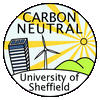
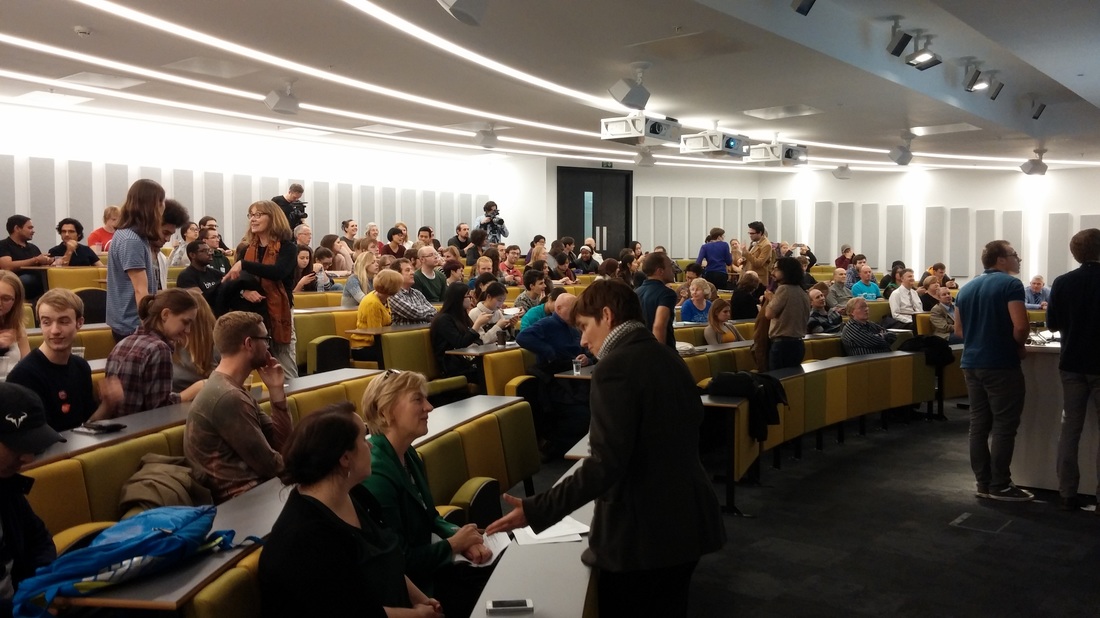
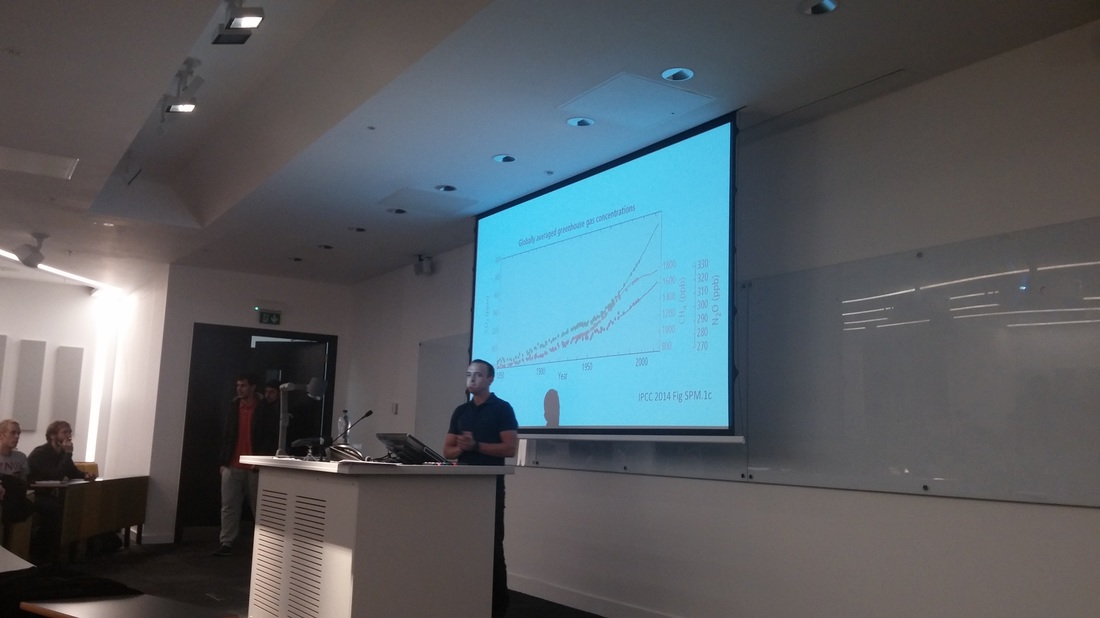
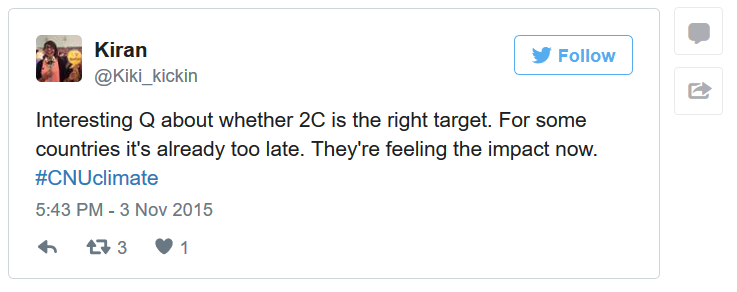
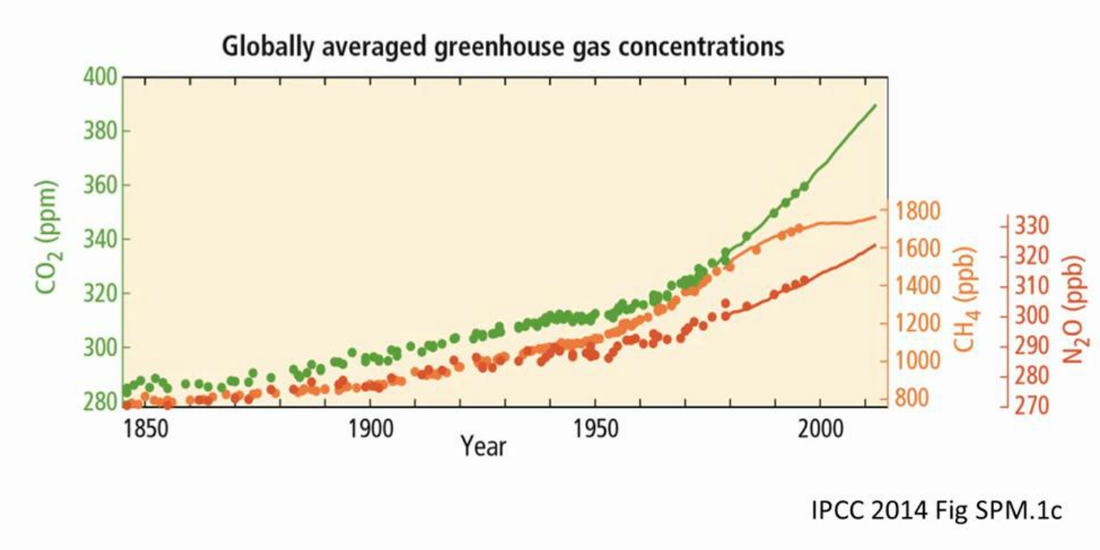
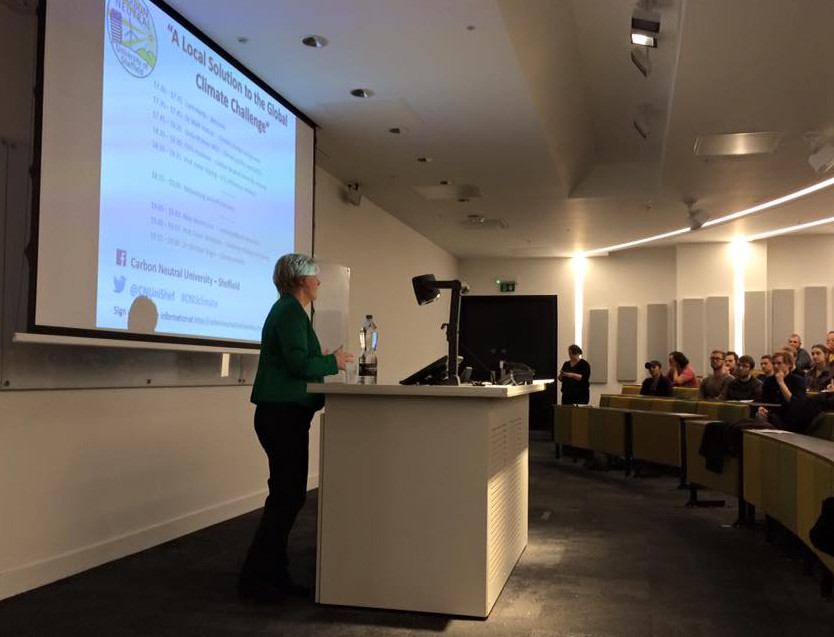
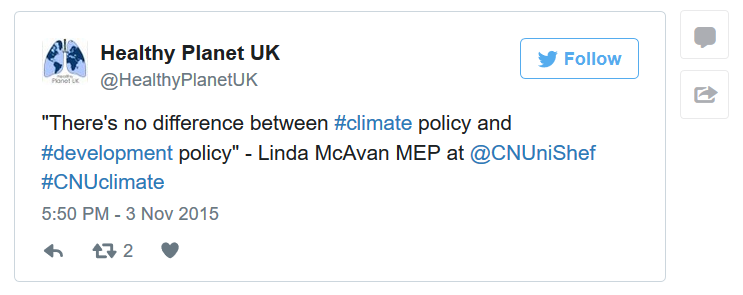
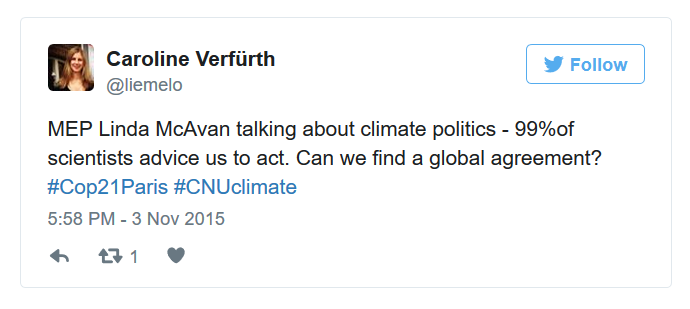
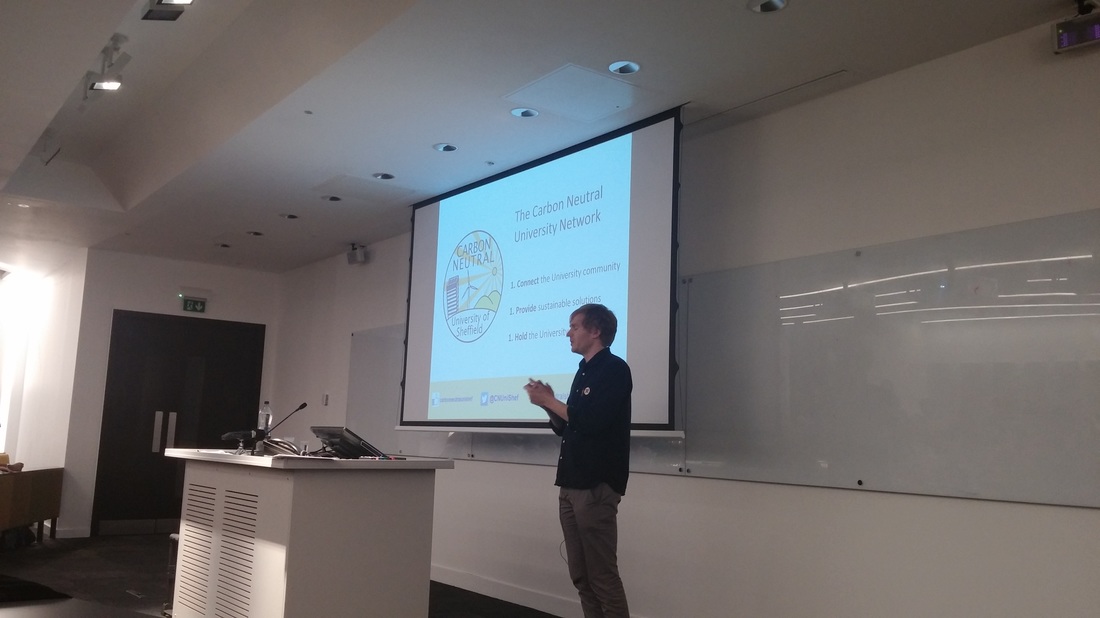
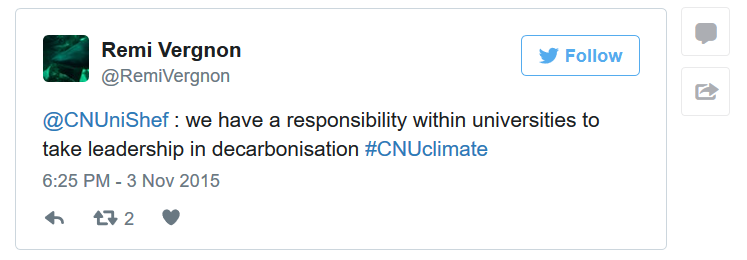
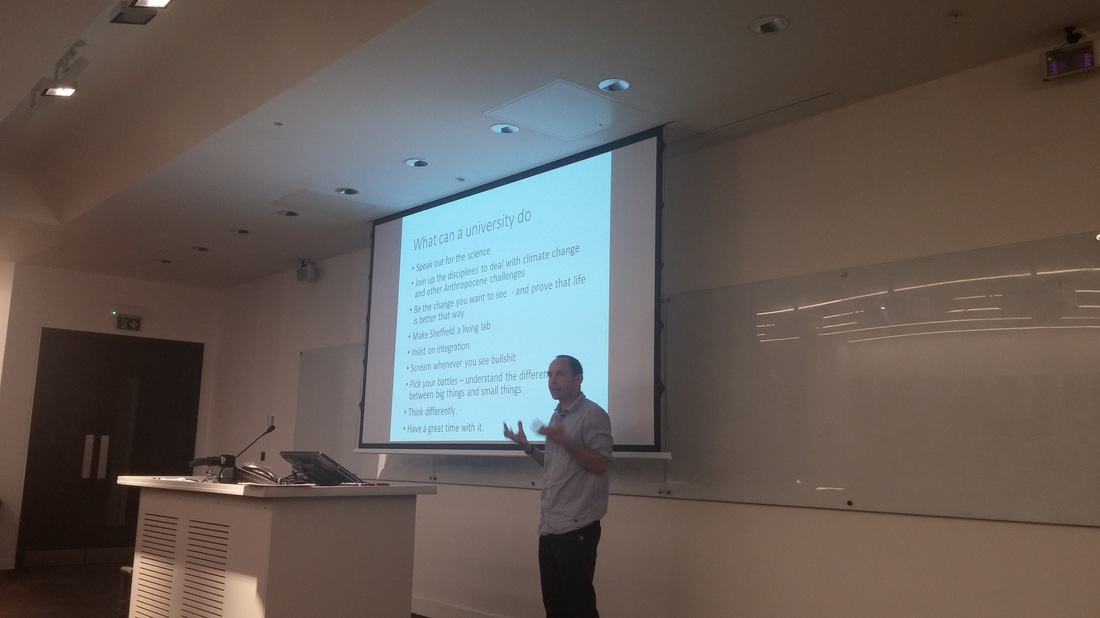
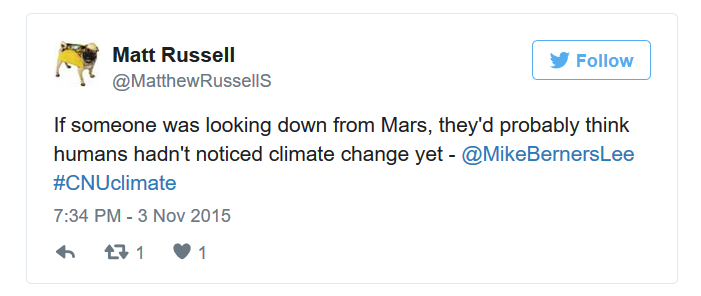
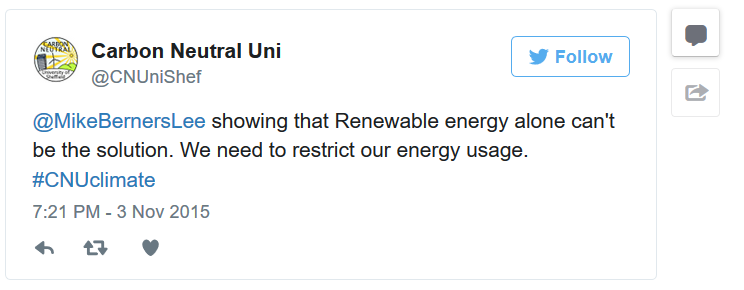
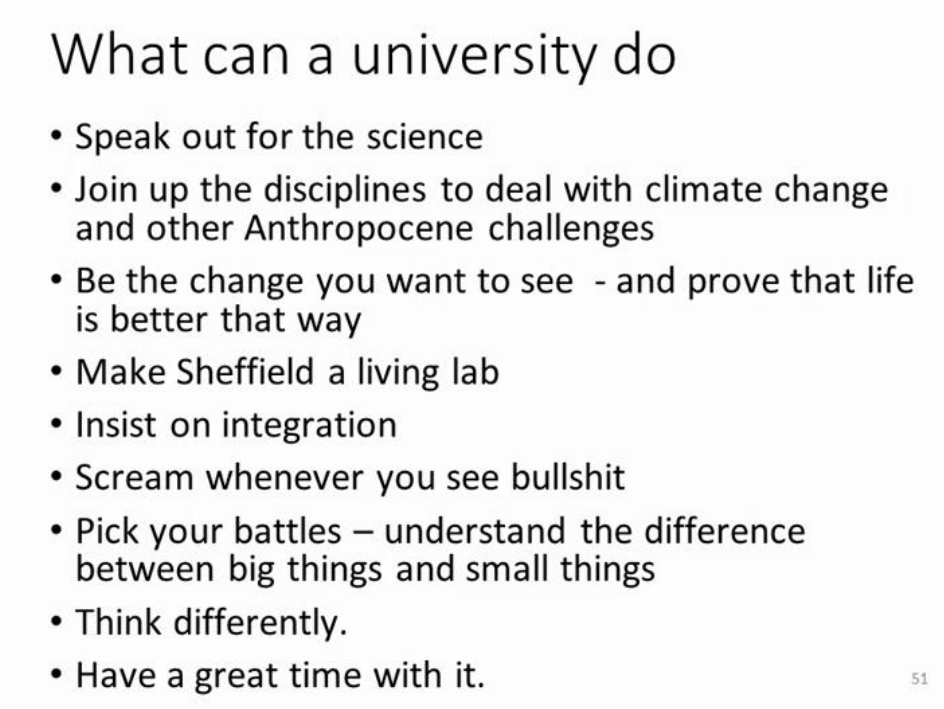
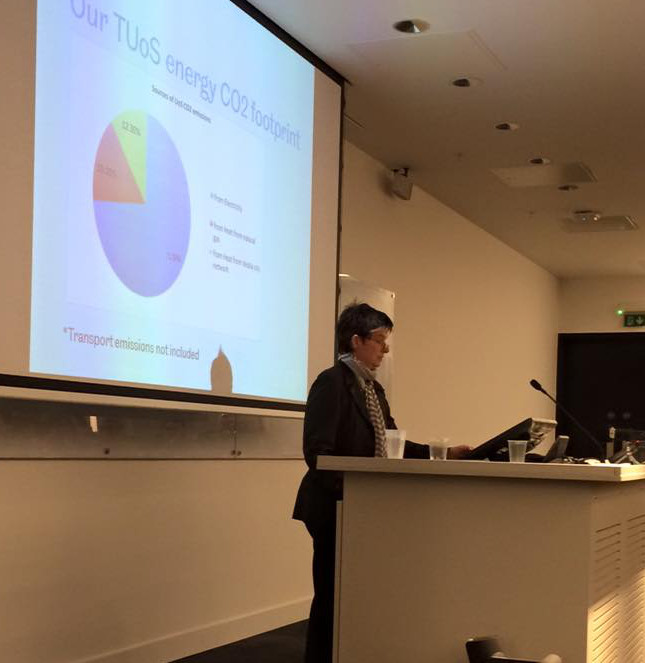
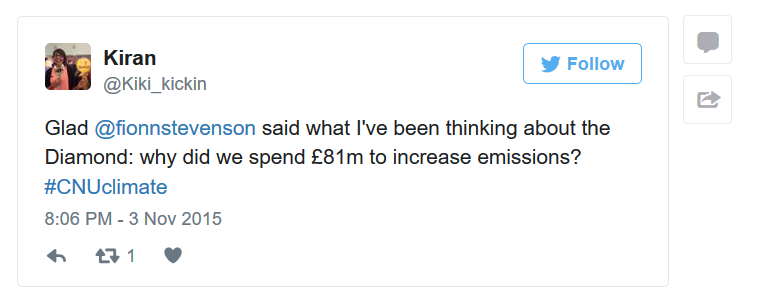
 RSS Feed
RSS Feed